Are you giving your pet a fresh bowl of water straight from your tap? That bowl of water might not be as fresh as you thought. If you wouldn’t drink your tap water, your pets shouldn’t either.
If you do not have a system in place to soften and remove contaminants from your water, you could be stunting the growth of your dog or cat and exposing them to dangerous chemicals.

Hard Water Effects on Dogs and Cats
Magnesium and other alkali earth metals accelerate water hardness when these minerals are present near your water source.
Calcium, on the other hand, is an element that naturally exists in water. The source of calcium in water is rocks such as limestone, marble, calcite, dolomite, gypsum, fluorite and apatite that have dissolved into the water. Like magnesium, calcium is a determinant of water hardness.
While there is no conclusive evidence suggesting pets could be harmed by drinking hard water, a 2016 Trupanion study found a relationship between medical claims for pets with urinary issues and areas of the United States with very hard water.
Trupanion’s study concluded that in areas with extremely hard water, cats – especially males – were three times more likely to have urinary complications than male cats in areas with lower levels of hardness.
Dogs aren’t in the clear, however. While dogs don’t develop kidney stones from hard water, they can be exposed to struvite or calcium oxalate stones. These stones can harm the bladder and lead to your dog getting a urinary tract infection.
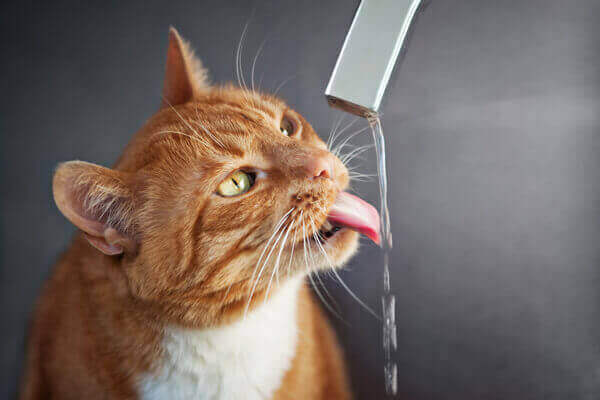
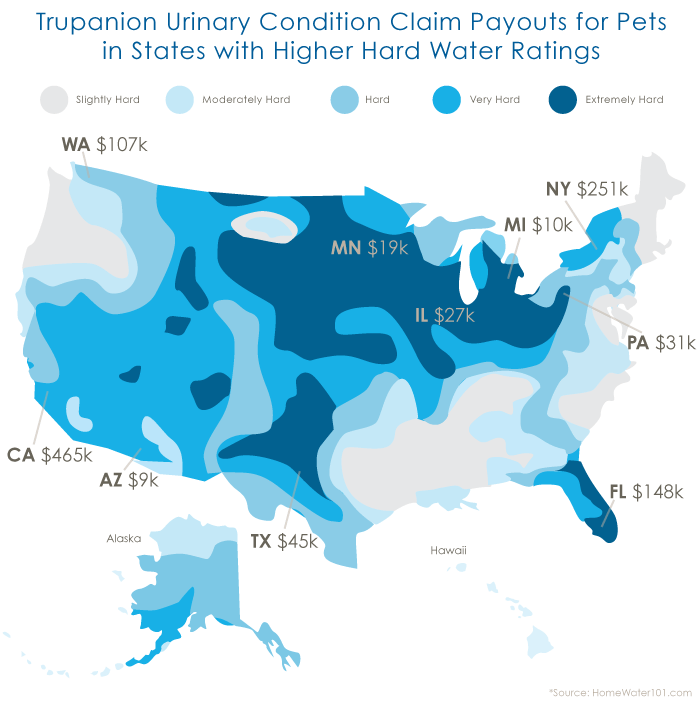
Tap Water And Pets: A Guide to Potential Contaminants
Lead
Lead is a toxic metal that is very unsafe to consume. If there are excess amounts of lead present in your water system, your pet will be affected. Water isn’t the only source of lead poisoning but it is one of the most frequent.
Common symptoms of lead poisoning include stomach pain, diarrhea, and vomiting. If pets are exposed to lead for a longer period of time it may cause neurological symptoms such as seizures. They may also experience fatigue, poor appetite, extreme anxiety, blindness and other changes in behavior.
Chlorine
Chlorine is purposefully dissolved into the water at treatment facilities across the country. They add this chemical in the water that goes to your home because of how effective it is in killing pathogens.
Chlorine levels up to 4 milligrams per liter in water are considered safe for human consumption. However, areas that have a high bacteria count in their source water tend to use more, leading to the increased likelihood of chlorine contamination in your water.
It is very probable that the health issues that chlorine causes in humans are similar to the issues it causes in our pets. If your pets drink water with high amounts of chlorine, they might experience GI irritation, red eyes and itchy skin.
Iron
Iron is a natural element that tastes metallic in high concentrations. Small amounts of iron are safe for your pets to consume. However, higher amounts of iron in your water may cause symptoms in your pets such as diarrhea and vomiting, pain and swelling in the abdomen, loss of appetite, low blood pressure, and fatigue.
Nitrates
Water that is high in nitrates is most common in water sourced from a well because it is often exposed to soils with this contaminant. The health risk of over-exposure to nitrates in your pets include abdominal pain, frequent urination, diarrhea and other signs. Other symptoms include tremors, coma and occasionally convulsions.
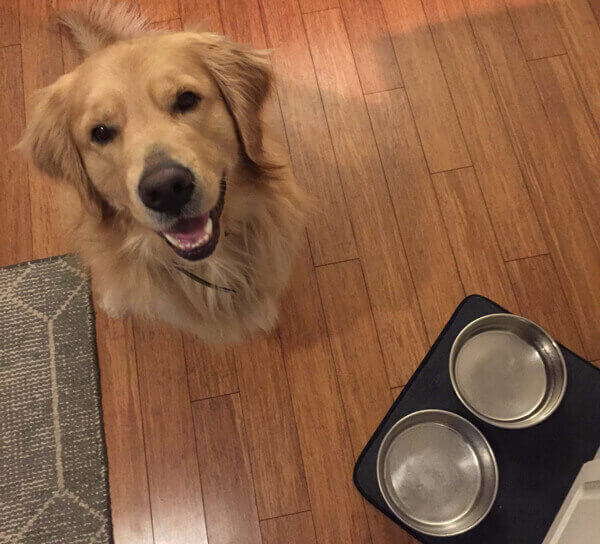
What to Do If Your Pet Is Drinking Contaminated Water
It is extremely important that you test your water for contaminants that could be affecting your pets’ health.
Our pets are our best friends. We are responsible for maintaining their health while they keep a smile on our faces. Whatever water solution you choose to install in your home, remember it’s on you to keep them hydrated and healthy. Ensure your pet is protected from unhealthy water by knowing the signs of contaminated water and acting fast, so you can keep them away from the vet and safe in your arms at home.
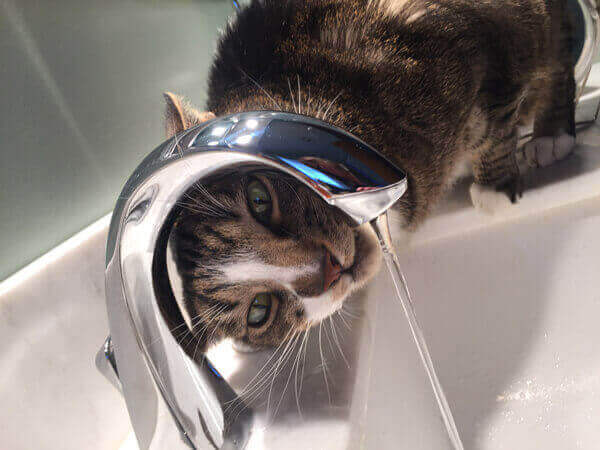
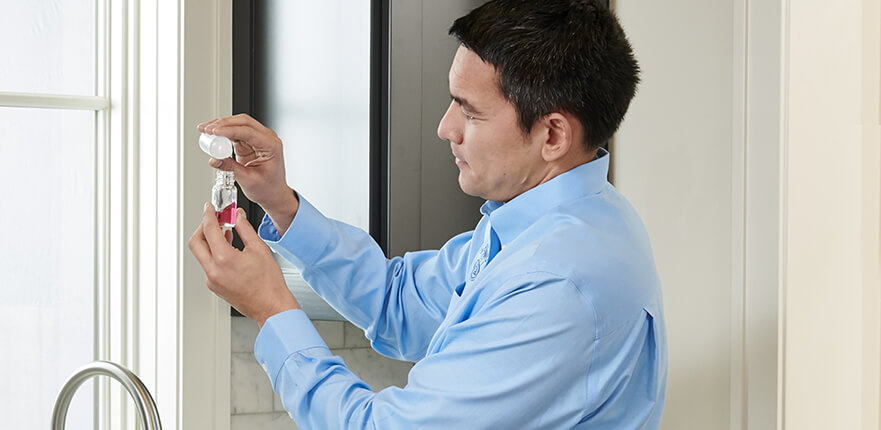
Contact Your Local EcoWater Dealer
EcoWater has hundreds of authorized dealers. Find your local dealer, who has licensed and trained Water Pros ready to solve your water problems with accurate diagnosis and treatment.
